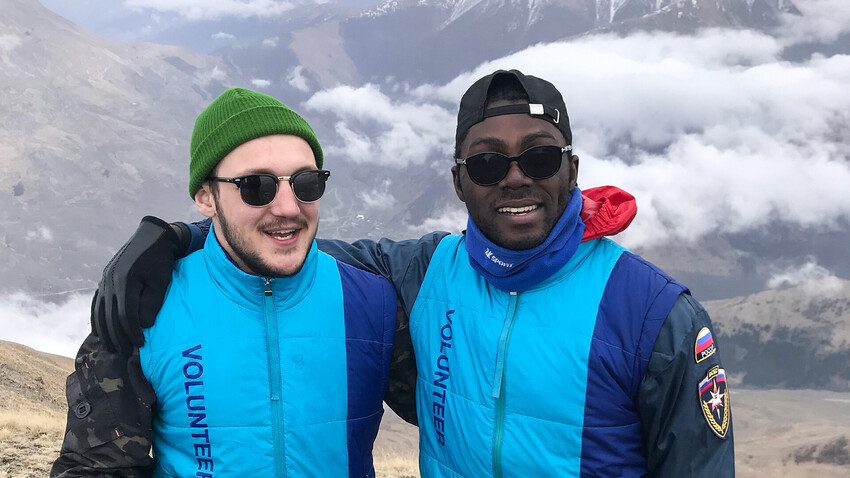
When pensioners enter the office of a black physician at the Vladikavkaz city clinic, they open their eyes in astonishment. But, he listens to them attentively and speaks to them in such a serious tone that they instantly begin to obey the exotic doctor.
David Ulrish Dalle, 28, has been living in North Ossetia for only five years, but he admits that he feels he has already become a real Ossetian.
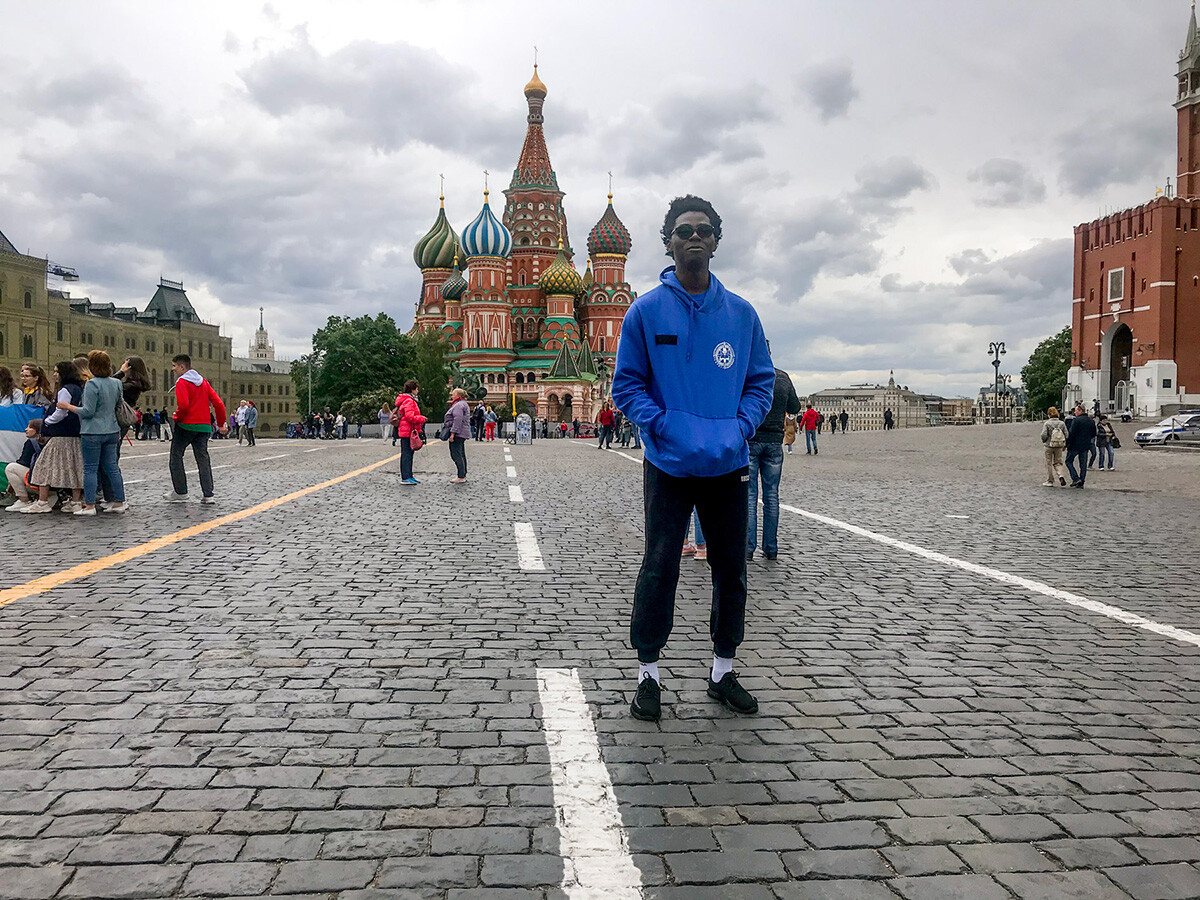
In his native Cameroon, David graduated from medical school and worked as a general practitioner in a hospital. But, he wanted to go further, to practice neurosurgery abroad. He was choosing between the UK, Germany, France and the U.S., but, everywhere, he had to pay a giant insurance fee. However, in Russia, this was not required.
“While I was researching and choosing, my fellow countryman, who had already studied in Ossetia, invited me to come over, promising he would help me with everything. I followed his advice and submitted the [necessary] documents."
David's mother was against his trip. She knew about this distant northern country only from TV news, where they showed a Russia that was very cold and had “a lot of racists”. But, David convinced her that since his friend lived there and didn't freeze, he would be fine, as well.
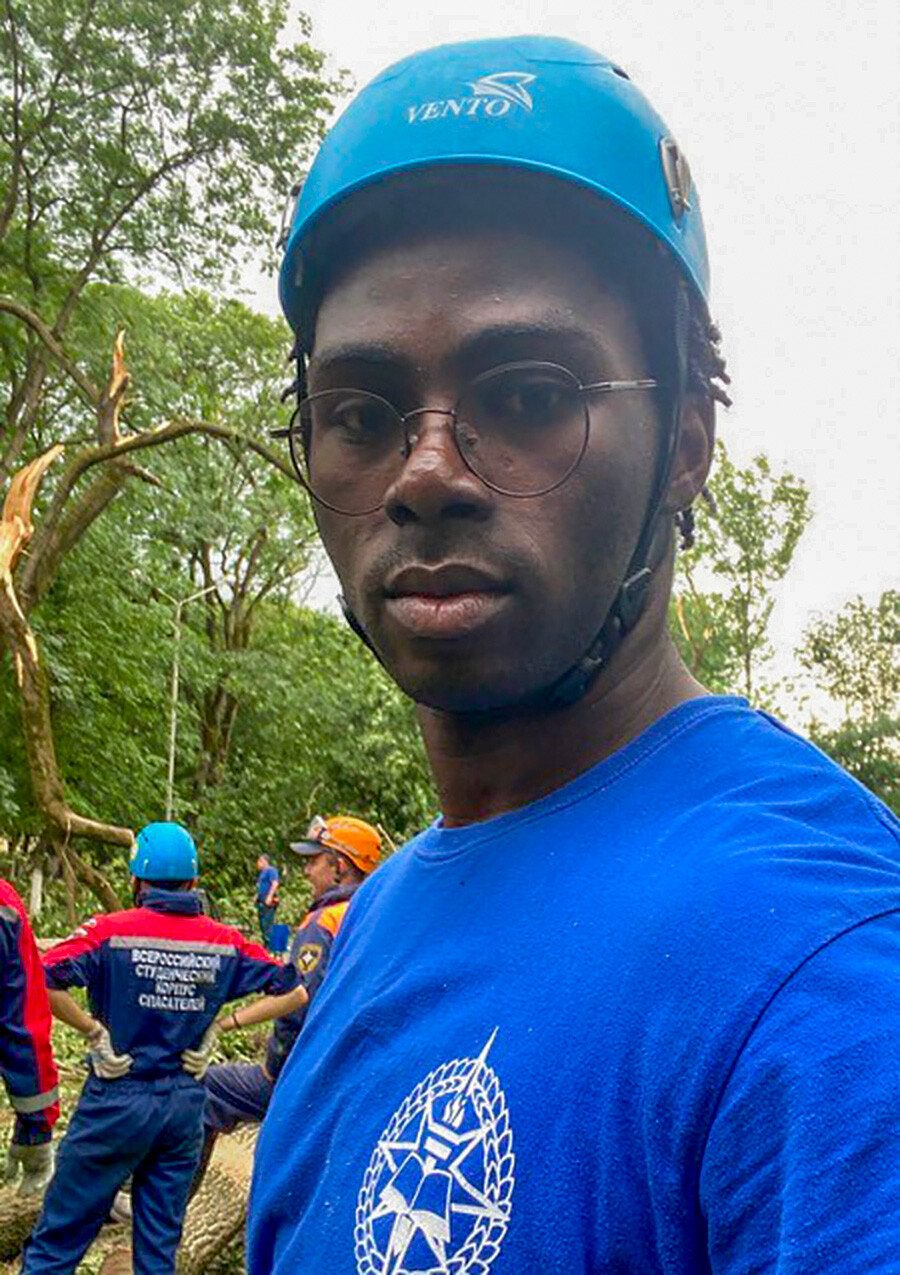
David arrived in Moscow in February 2019. “I prepared for the cold in the following way: I put on jeans over jeans and three sweatshirts, because they don't sell warm jackets in Cameroon.”
The first day in Russia was not too successful. David certainly won't forget it anytime soon. He spent 11 hours at the airport: First, they checked his documents for a very long time, then he missed his luggage and could hardly find where to pick it up. And then, the airport employee did not speak English and ended up “yelling at me” for some reason. For almost an hour, he was looking in the cold for a car that was supposed to pick him up and even ended up getting frostbite on his fingers: “They still react to the cold.”
But, when David flew from Moscow to Vladikavkaz, he immediately felt better. The city is much smaller, everything is clear and interactions between people turn out to be very nice. “I felt at home, everyone was asking me: 'Oh, brother! Where are you from? How can I help you?’”.
“The Caucasian and African cultures have the same basis: we respect our elders. We used to stand up in front of our elders and remove the hat from our heads. The elders have the main place at the table, they start talking first and eat first.”
Covering exposed parts of the body in holy places, not touching girls - lots of things were familiar, understandable and comfortable to David.
Every day, David faces the famous Caucasian hospitality. There was a period when he worked as a courier, bringing people food from cafes and ‘shashlik’ (kebab) restaurants. Every time people saw him, they were very surprised and would ask him how long he had been there and how he was doing. Some would even invite him to eat the delivered ‘shashlik’ with them. “They even offered me money, so that I wouldn’t have to work and could stay with them for a while!”
David also adopted the habit of always drinking tea from Russians. “I feel I have become an Ossetian not just a little, but almost entirely! I fell in love with these mountains, these people, their traditions, the Ossetian pies with leaves! In short, I am a real Ossetian now!”
At first, David solved his lack of language skills simply by translating the necessary words through his phone and, soon, he was already going to grocery stores and buying everything without any assistance. And the friend who invited David to Ossetia taught him the rest, like how to pick the right bus and route.
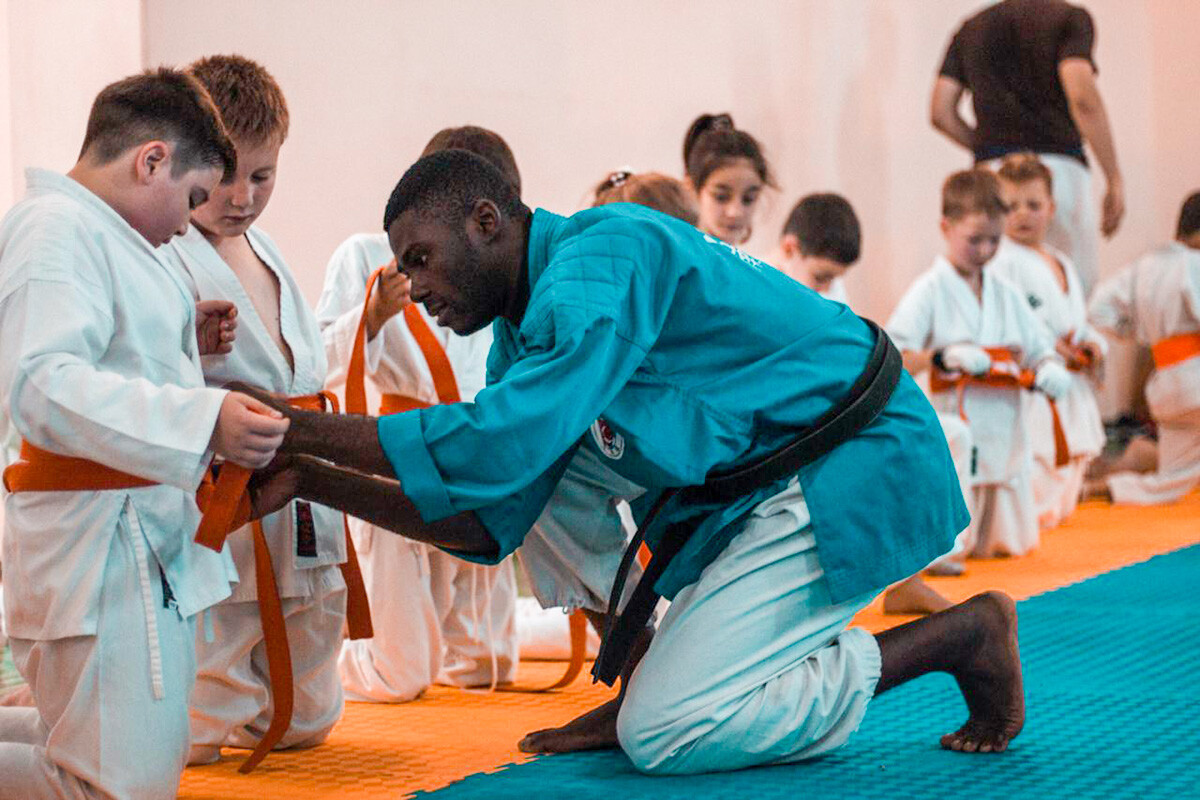
Over time, he began to study Russian, but he says really learned it at judo classes with children! David himself has been practicing martial arts since he was five years old; he has a black belt in judo and, back in his homeland, he used to train kids. In Ossetia, meanwhile, he was also offered to work with kids and he confirmed his certificates.
“You have to talk to children simply, but correctly, so that they understand you. Sometimes, I didn't succeed. And they corrected me, they were not shy, because they are children. Then, I would go home and sit down with my books and learn how to speak correctly...”
In Ossetia, David is a local star now. He sings and plays the piano and performs at student concerts, corporate events and weddings.
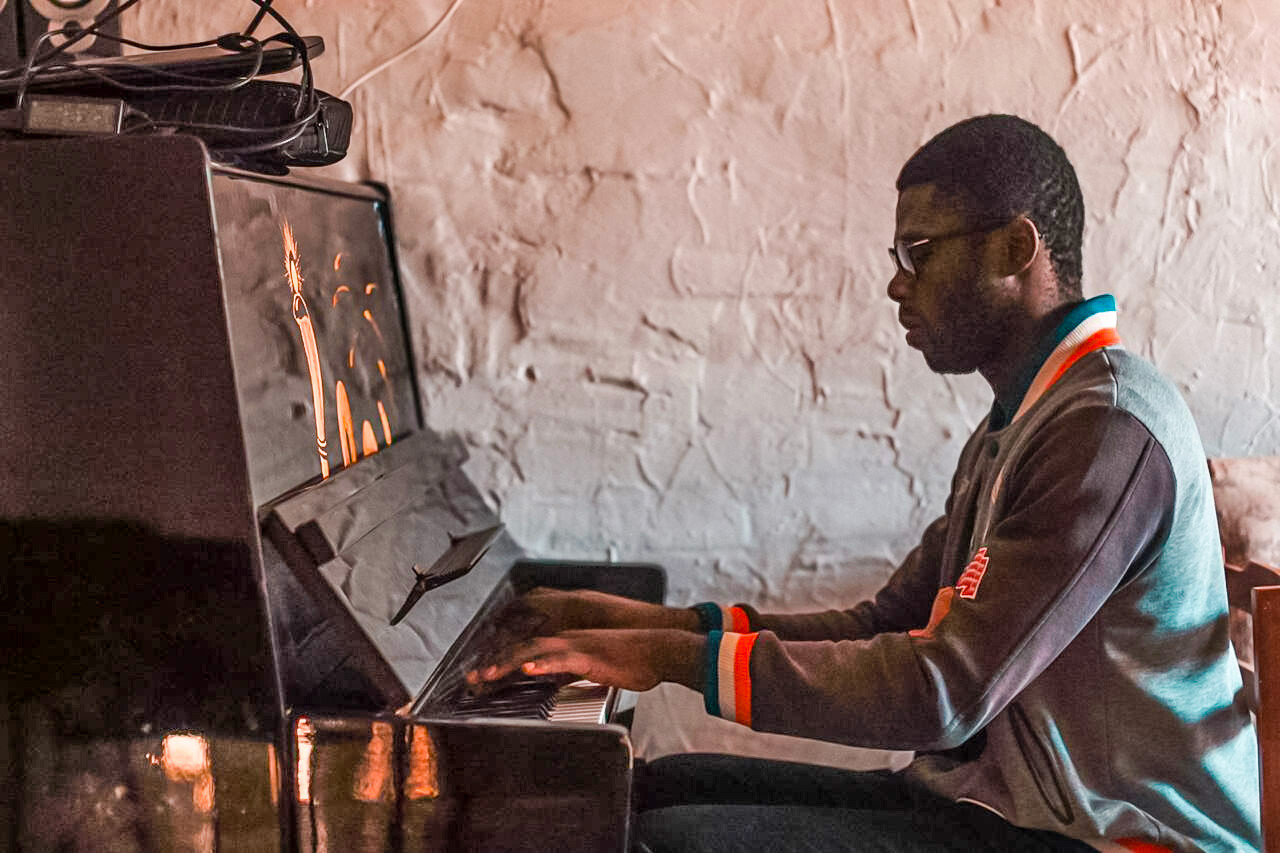
“I was once invited to perform as a pianist at an orphanage in the mountains. The kids loved the concert, but they were also amazed by the color of my skin. They had never seen a living African and they asked their tutors: ‘How did he get such a strong tan?’”
In Russia, David confirmed his medical degree and began working in his specialty field. But, in addition to that, he also became a volunteer rescuer. Now, he takes part in mountain search operations - looking for and rescuing missing people.
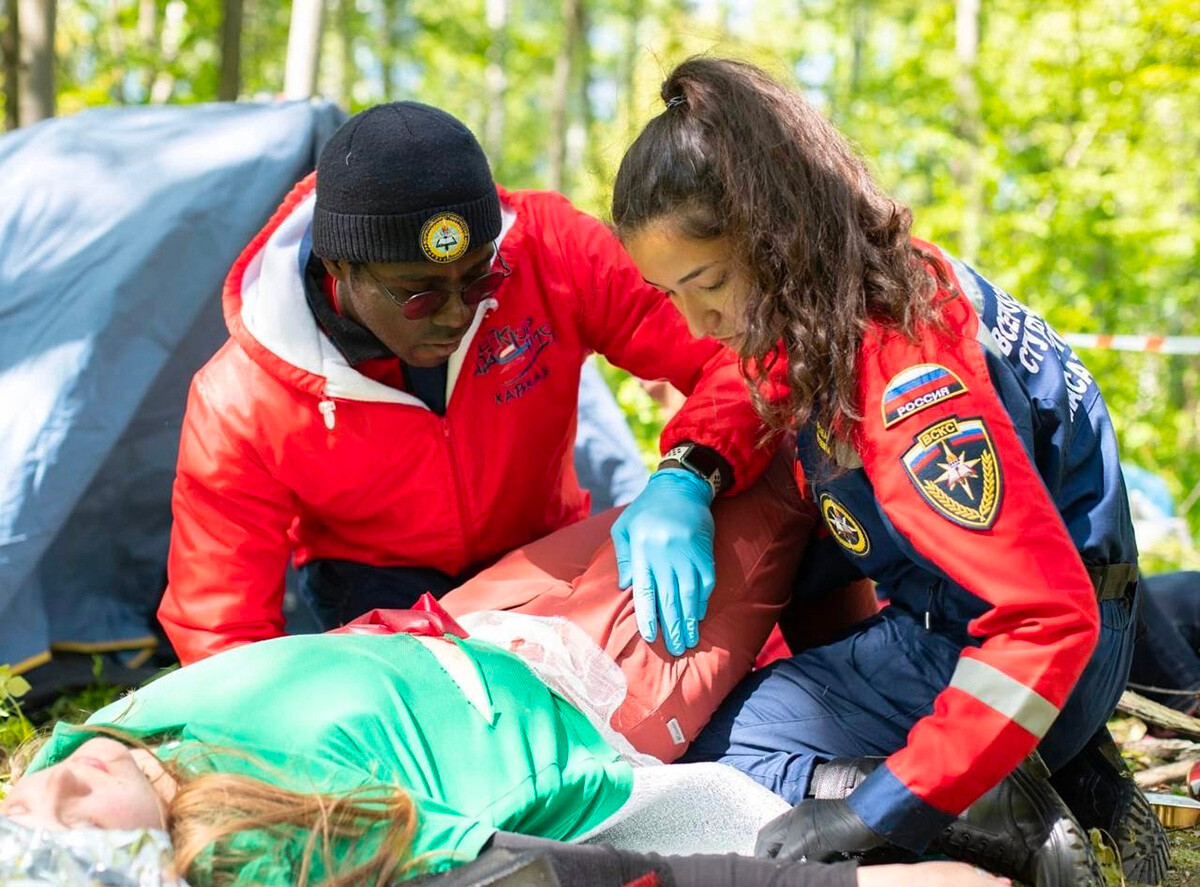
In addition, David became Ossetia's first instructor for providing first aid. He learned it in Cameroon with the International Committee of the Red Cross and, in Russia, he retrained in Russian. Now, he has already trained 2,000 people.
David currently works as a physician at the city clinic, but his dream is still neurosurgery.
“I have two medical diplomas: Cameroonian and Russian. I will stay in Russia, but I don't know where I will work yet: Moscow, St. Petersburg, Kaliningrad, Vladivostok? Or maybe North Ossetia?”
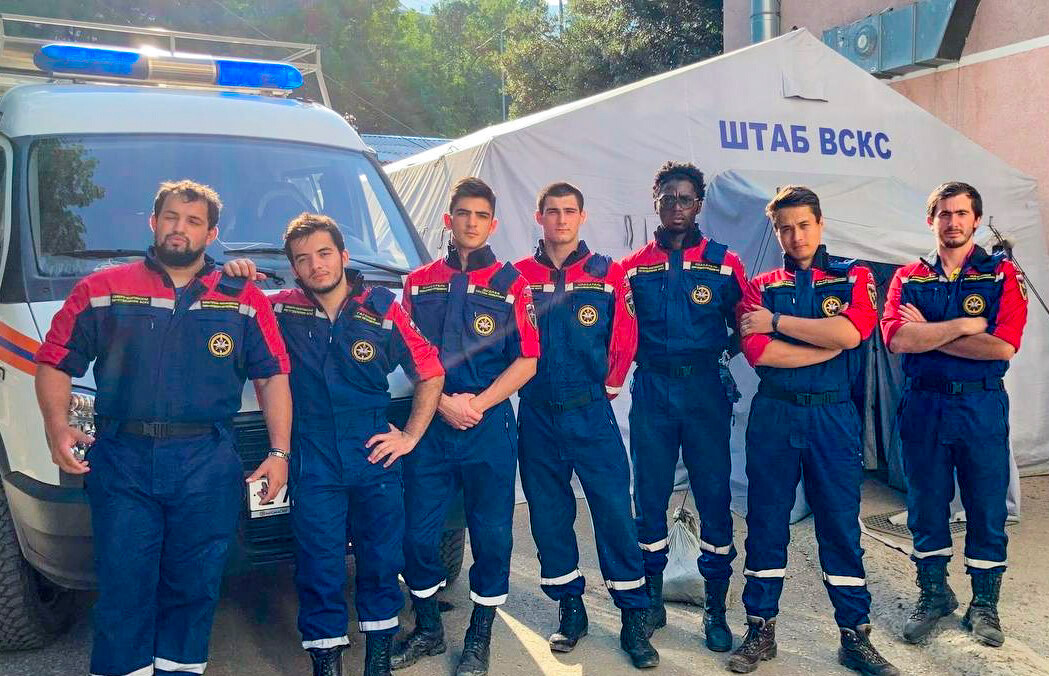
The full version of the interview was published in Russian in the Nation magazine.
Dear readers,
Our website and social media accounts are under threat of being restricted or banned, due to the current circumstances. So, to keep up with our latest content, simply do the following:
If using any of Russia Beyond's content, partly or in full, always provide an active hyperlink to the original material.
Subscribe
to our newsletter!
Get the week's best stories straight to your inbox